Filter by
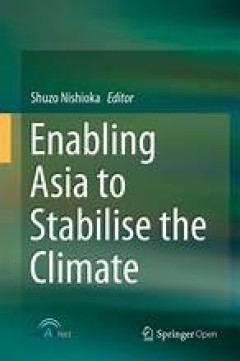
Enabling Asia to Stabilise the Climate
This book presents good practices in Asia and ASEAN countries for effectively promoting advances in response to climate change, which can help to achieve sustainable development in Asia and around the world. As a proposal, the aim is to influence the discussions at COP 21 by providing a positive agenda with concrete actions from an Asian perspective. The book is divided into three parts. Part 1…
- Edition
- 1
- ISBN/ISSN
- 978-981-287-826-7
- Collation
- -
- Series Title
- -
- Call Number
- X, 270
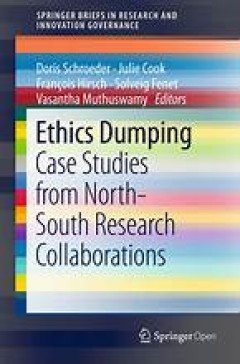
Ethics Dumping
This open access book provides original, up-to-date case studies of “ethics dumping” that were largely facilitated by loopholes in the ethics governance of low and middle-income countries. It is instructive even to experienced researchers since it provides a voice to vulnerable populations from the fore mentioned countries. Ensuring the ethical conduct of North-South collaborations in resea…
- Edition
- 1
- ISBN/ISSN
- 978-3-319-64731-9
- Collation
- -
- Series Title
- SpringerBriefs in Research and Innovation Governance
- Call Number
- XIII, 134

Taking Stock of Industrial Ecology
How can we design more sustainable industrial and urban systems that reduce environmental impacts while supporting a high quality of life for everyone? What progress has been made towards reducing resource use and waste, and what are the prospects for more resilient, material-efficient economies? What are the environmental and social impacts of global supply chains and how can they be measured …
- Edition
- 1
- ISBN/ISSN
- 978-3-319-20571-7
- Collation
- -
- Series Title
- XXI, 362
- Call Number
- -
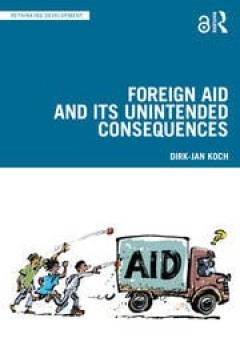
Foreign Aid and its Unintended Consequences
Foreign aid and international development frequently bring with it a range of unintended consequences, both negative and positive. This book delves into these consequences, providing a fresh and comprehensive guide to understanding and addressing them. The book starts by laying out a theoretical framework based on complexity thinking, before going on to explore the ten most prevalent kinds o…
- Edition
- 1st Edition
- ISBN/ISSN
- 9781003356851
- Collation
- 236
- Series Title
- -
- Call Number
- -
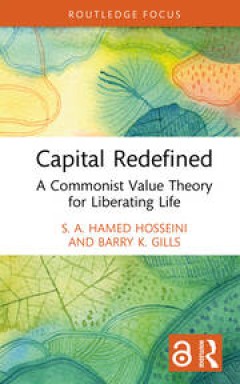
Capital Redefined : A Commonist Value Theory for Liberating Life
ABSTRACT Capital Redefined presents a unique perspective on the nature of “capital,” departing from the prevailing reductionist accounts. Hosseini and Gills offer an expanded perspective on Marxian value theory by addressing its main limitations and building their own integrative value theory. They argue that the current understanding of “value” must be re-examined and liberated from i…
- Edition
- -
- ISBN/ISSN
- 9781003340386
- Collation
- -
- Series Title
- -
- Call Number
- -

Social Protection and Informal Workers in Sub-Saharan Africa : Lived Realitie…
ABSTRACT The promotion of social protection in Sub-Saharan Africa happens in a context where informal labour markets constitute the norm, and where most workers live uncertain livelihoods with very limited access to official social protection. The dominant social protection agenda and the associated literature come with an almost exclusive focus on donor and state programmes even if their cove…
- Edition
- -
- ISBN/ISSN
- 9781003173694
- Collation
- -
- Series Title
- -
- Call Number
- -

Emerging Technologies
This monograph investigates a multitude of emerging technologies including 3D printing, 5G, blockchain, and many more to assess their potential for use to further humanity’s shared goal of sustainable development. Through case studies detailing how these technologies are already being used at companies worldwide, author Sinan Küfeoğlu explores how emerging technologies can be used to enhanc…
- Edition
- 1
- ISBN/ISSN
- 978-3-031-07127-0
- Collation
- -
- Series Title
- Sustainable Development Goals Series
- Call Number
- XXIII, 512

Governing the Sustainable Development Goals
This open access book conceptualises the Sustainable Development Goals as epistemic infrastructures that connect numbers, networks and governing paradigms.The book approaches quantification not merely as a tool for governing, but rather as a broader epistemic system through which global public policy is produced. This book focuses on the role of international organisations in shaping and implem…
- Edition
- -
- ISBN/ISSN
- 978-3-031-03938-6
- Collation
- -
- Series Title
- -
- Call Number
- -

Agriculture for Economic Development in Africa
This book explores the role of agriculture in long-term economic growth. With a particular focus on Ethiopia, the role of the state in igniting agricultural growth and in sustaining economic growth is highlighted as essential for low-income countries. Taking ideas from both economic history and development economics, the ability of Ethiopia and the rest of Africa to sustain recent rapid growth …
- Edition
- 1
- ISBN/ISSN
- 978-3-031-07901-6
- Collation
- -
- Series Title
- -
- Call Number
- XV, 98
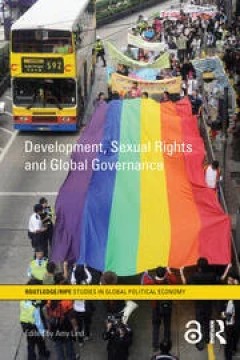
Development, Sexual Rights and Global Governance
This book addresses how sexual practices and identities are imagined and regulated through development discourses and within institutions of global governance. The underlying premise of this volume is that the global development industry plays a central role in constructing people’s sexual lives, access to citizenship, and struggles for livelihood. Despite the industry’s persistent insis…
- Edition
- 1st Edition
- ISBN/ISSN
- 9780203868348
- Collation
- p. 240
- Series Title
- -
- Call Number
- -
 Computer Science, Information & General Works
Computer Science, Information & General Works  Philosophy & Psychology
Philosophy & Psychology  Religion
Religion  Social Sciences
Social Sciences  Language
Language  Pure Science
Pure Science  Applied Sciences
Applied Sciences  Art & Recreation
Art & Recreation  Literature
Literature  History & Geography
History & Geography